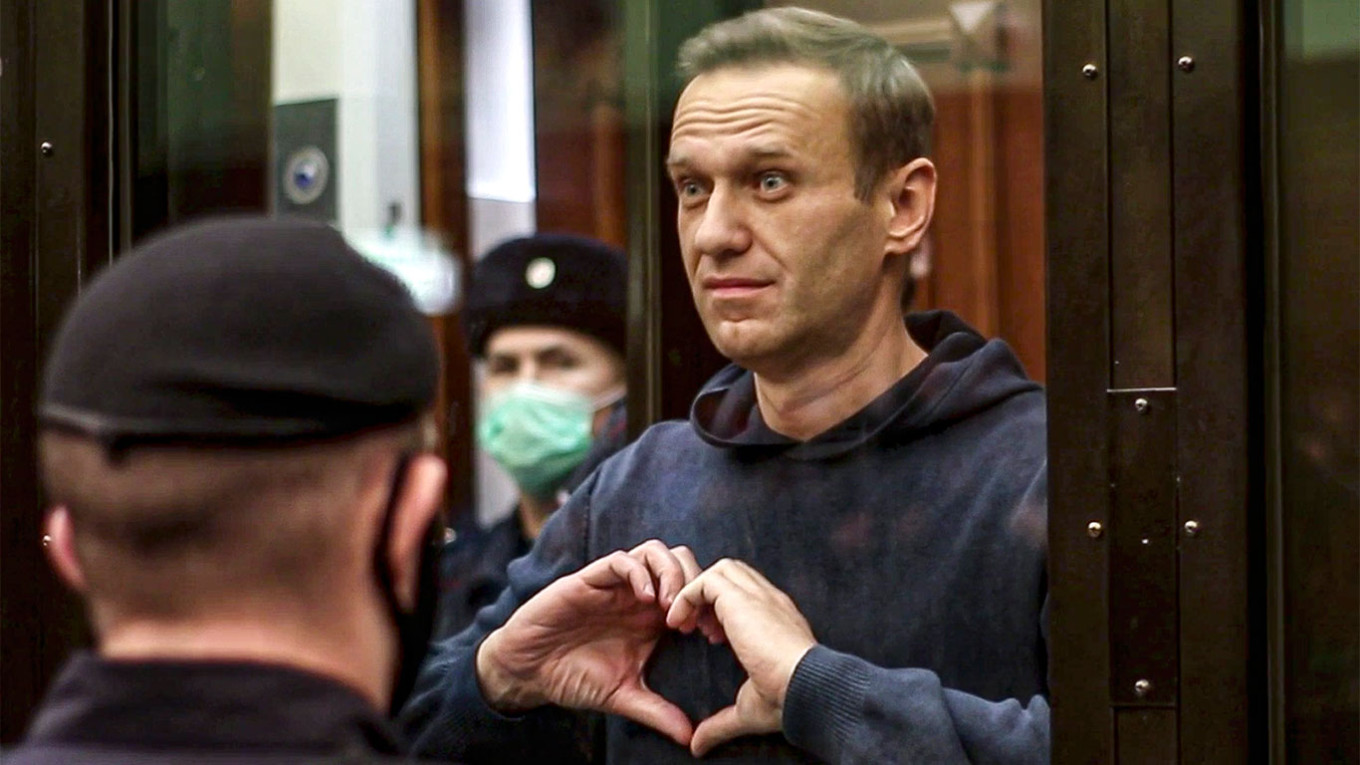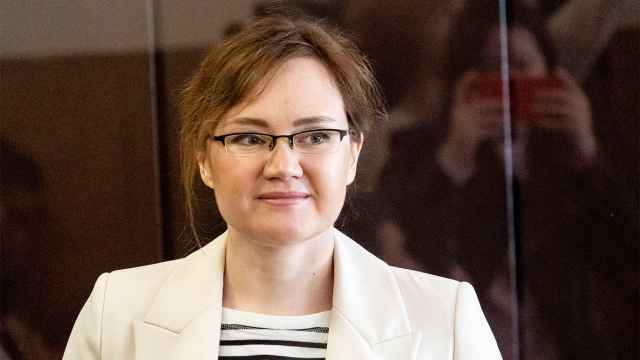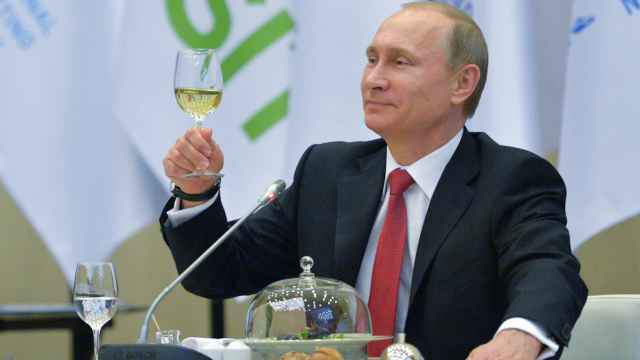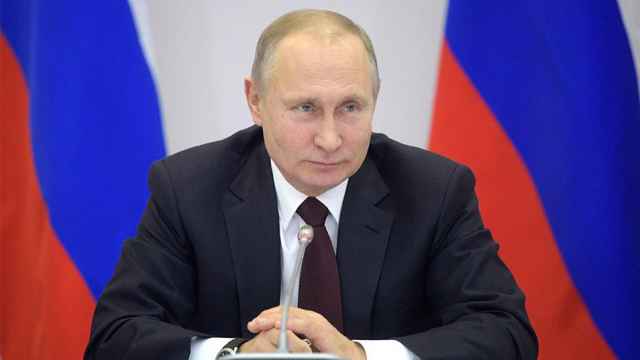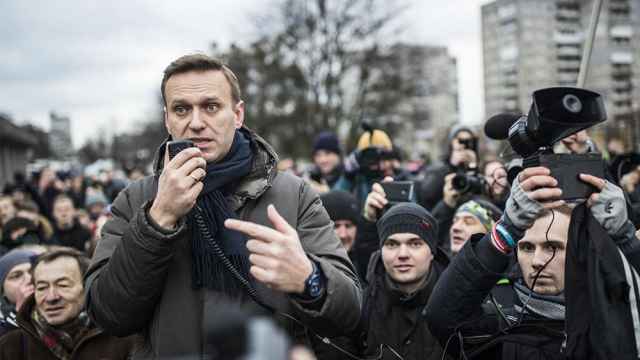Alexei Navalny had a strong belief in a better Russia. However, it was not solely due to this belief that he was able to become the face of the Russian opposition and President Vladimir Putin's most dangerous political opponent. Navalny had a consistent political strategy and the iron will to implement it.
The key principle of Navalny's strategy was that of opportunity-seeking. His way of fighting Putinism was based on a continuous search for new pressure points, innovative political alliances, and inventive ways to mobilize allies and supporters. It was this ability to generate political opportunities that allowed him to instill hope in Russians and motivate them to act.
Navalny consistently exposed new weak spots of Putin's regime and looked for ways to exploit them. In particular, he became a noticeable political figure after using Russian legislation on government procurement to conduct prominent anti-corruption investigations. His RosPil project invited the public to scrutinize public documents for evidence of corruption. Other projects that Navalny launched early in his career, such as RosYama or RosZhKH, were based on the same principle, empowering Russian citizens dissatisfied with the authorities due to the poor quality of the country's infrastructure.
A decade later, in 2019, following a similar principle, Navalny managed to leverage the labor rights agenda. The Teachers' Alliance and Doctors' Alliance, members of the trade union association he created, became visible political actors in Russia.
Navalny was also very open-minded about who he entered into coalitions with, to the point of attracting criticism. He chose diverse partners throughout his career, guided not so much by ideological affinity as by the extent to which they could open up new opportunities for his struggle. His political career started in the Russian social-liberal party Yabloko in 2000. In 2007, he co-founded the national-democratic movement NAROD, together with prominent Russian nationalists.
During the protests of 2011-2012, Navalny coordinated actions with various liberal, nationalist, and socialist forces. He also contributed to creating the Coordination Council of the Russian Opposition to unite a broad spectrum of politicians, from right-wing to left-wing ones. In 2013, he was nominated as a candidate in the Moscow mayoral elections by the liberal-conservative RPR-PARNAS party.
Navalny has also used inventive strategies to reach Russians. He was among the first Russian politicians to fully make use of the potential of the internet to attract and mobilize supporters. His blog, and subsequently his YouTube channels, have become one of his main tools in the political struggle.
Navalny's open-mindedness, versatility, and ingenuity did not prevent him from formulating a clear political vision for Russia’s desired future. In his 2018 presidential campaign as well as in his attempts to register a political party, Navalny's team produced well-designed political programs. However, these programs were not why Navalny became the most popular Russian opposition leader.
The political innovations that truly made Navalny stand out were messages about utilizing available opportunities and being open-minded in the search for new ones. For instance, he consistently promoted the idea of "smart voting" for any political party except for the ruling United Russia. This allowed to Russian opposition to mobilize the protests of 2011-2013. Moreover, this strategy enabled Navalny to use a combination of anti-Putin and anti-corruption rhetoric to leverage Russian electoral politics even when barred from appearing on the ballot or registering his own party.
Navalny's overall approach to elections was also flexible. While some leaders of the Russian protest movement called for their boycott due to widespread electoral fraud and the exclusion of opposition candidates, Navalny opted for a more nuanced approach. He described this strategy with the formula: "We participate in elections, and we do not participate in non-elections."
This strategy allowed Navalny to be registered as a candidate in the Moscow mayoral elections of 2013. He achieved an impressive 27% of the vote, creating a real risk that the pro-Putin incumbent would not be re-elected in the first round as expected. During the 2018 presidential elections, the same approach enabled Navalny to develop a broad nationwide network of organized supporters and thus galvanize a whole new generation of local political activists. He also effectively utilized local election campaigns in 2019 and 2020 to mobilize supporters, organize prominent street protests, and ultimately assist the election of some opposition candidates despite falsifications and repressions on the part of the state.
Navalny's decision to return to Russia in 2021, after he survived a poisoning attempt by the FSB, may seem like a miscalculation or reckless gesture. However, he clearly saw his return as a catalyst for creating new opportunities.
In a landscape where channels of political participation are very limited, he knew that he would need to take risks to make change. His return and his subsequent arrest, along with his last investigation into Putin's palace by the Black Sea, motivated Russians in over 100 cities to take to the streets in protests where over 3,000 people were arrested. Overall, his self-sacrificing decision did trigger a significant public outcry against Putin's regime, which was only quelled through unprecedented repression.
Even while being kept in prison, with extremely limited ways of communicating with the world, Navalny continued to look for new ways to put pressure on the regime, galvanize Russian society, and mobilize anti-Putin forces of all kinds. In January 2024, shortly before his death, Navalny used one of his court appearances to speak in support of the religious rights of Muslims who are barred from reading the Quran in Russian prisons.
One of the last political messages Navalny sent from prison was related to the upcoming presidential elections. He expressed support for Noon Against Putin, a campaign urging Russians to go to the polling stations to vote against Putin at noon on March 17.
The exact details of what happened when Navalny died in prison are still unknown. However, this is a moment when we can examine the legacy Navalny left for those who oppose Putin and other autocracies around the world.
It is the moment to reflect on how Navalny constantly searched for opportunities to challenge Putin. This might suggest how the present autocracy can be defeated. Navalny believed that it could end via the creative collective action of people finding ways to exploit the regime's vulnerabilities and identifying moments when it would be susceptible to pressure. These people would not need to share common ideological beliefs, but a shared goal of ending tyranny would bring them together.
What does this concept mean for Russia today? In the two years since the full-scale invasion of Ukraine, Putin's regime has demonstrated multiple weaknesses and dysfunctions. The lines of people who braved frozen temperatures and risks of persecution to support pro-peace hopeful Boris Nadezhdin show that there are plenty of Russians who desire change and want the war to end.
Some of them believe that an aggressive expansionist war is morally unjustifiable and think that it is unacceptable to live in an absolutist autocracy in the 21st century. Others just want their sons and husbands back. But others also want to be certain that the imperial ambitions of an elderly autocrat will not jeopardize their future.
Does all this give us an ideal moment and a perfect people to put an end to this aggressive dictatorship? People, no matter where they’re from, are generally imperfect. And, in Putin's Russia, there will never be an ideal moment to strike.
But Alexei Navalny believed that the Russian people are good enough, that they can mobilize and use an opportune moment in the best way possible. He also believed that if Putin decided to kill him, it would mean that the Russian people at this moment are especially strong.
Navalny did not choose to be killed in jail, but it happened. Regardless of whether he died in another assassination attempt or from the torturous conditions of a Russian prison, he died as a martyr. If we follow his principles, his death should be seen as a way to open opportunities for those alive.
A Message from The Moscow Times:
Dear readers,
We are facing unprecedented challenges. Russia's Prosecutor General's Office has designated The Moscow Times as an "undesirable" organization, criminalizing our work and putting our staff at risk of prosecution. This follows our earlier unjust labeling as a "foreign agent."
These actions are direct attempts to silence independent journalism in Russia. The authorities claim our work "discredits the decisions of the Russian leadership." We see things differently: we strive to provide accurate, unbiased reporting on Russia.
We, the journalists of The Moscow Times, refuse to be silenced. But to continue our work, we need your help.
Your support, no matter how small, makes a world of difference. If you can, please support us monthly starting from just $2. It's quick to set up, and every contribution makes a significant impact.
By supporting The Moscow Times, you're defending open, independent journalism in the face of repression. Thank you for standing with us.
Remind me later.



